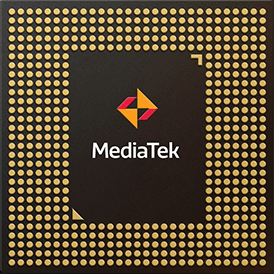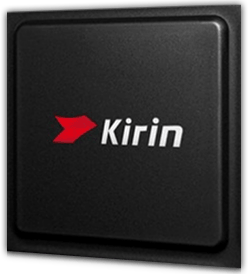MediaTek MT6739 vs HiSilicon Kirin 710
Last updated:
CPU comparison with benchmarks

|
|
|
| MediaTek MT6739 | HiSilicon Kirin 710 | |
CPU comparisonMediaTek MT6739 or HiSilicon Kirin 710 - which processor is faster? In this comparison we look at the differences and analyze which of these two CPUs is better. We compare the technical data and benchmark results.
The MediaTek MT6739 has 4 cores with 4 threads and clocks with a maximum frequency of 1.50 GHz. Up to 3 GB of memory is supported in 1 memory channels. The MediaTek MT6739 was released in Q4/2017. The HiSilicon Kirin 710 has 8 cores with 8 threads and clocks with a maximum frequency of 2.20 GHz. The CPU supports up to 6 GB of memory in 2 memory channels. The HiSilicon Kirin 710 was released in Q3/2018. |
||
| Mediatek MT-Serie (72) | Family | HiSilicon Kirin (29) |
| MediaTek MT67xx (17) | CPU group | HiSilicon Kirin 710 (1) |
| 1 | Generation | 5 |
| Cortex-A53 | Architecture | Cortex-A73 / Cortex-A53 |
| Mobile | Segment | Mobile |
| -- | Predecessor | -- |
| -- | Successor | -- |
|
|
||
CPU Cores and Base FrequencyThe MediaTek MT6739 is a 4 core processor with a clock frequency of 1.50 GHz. The HiSilicon Kirin 710 has 8 CPU cores with a clock frequency of 2.20 GHz. |
||
| MediaTek MT6739 | Characteristic | HiSilicon Kirin 710 |
| 4 | Cores | 8 |
| 4 | Threads | 8 |
| normal | Core architecture | hybrid (big.LITTLE) |
| No | Hyperthreading | No |
| No | Overclocking ? | No |
| 1.50 GHz 4x Cortex-A53 |
A-Core | 2.20 GHz 4x Cortex-A73 |
| -- | B-Core | 1.70 GHz 4x Cortex-A53 |
Internal GraphicsThe integrated graphics unit of a processor is not only responsible for the pure image output on the system, but can also significantly increase the efficiency of the system with the support of modern video codecs. |
||
| PowerVR GE8100 | GPU | ARM Mali-G51 MP4 |
| 0.57 GHz | GPU frequency | 0.65 GHz |
| 0.57 GHz | GPU (Turbo) | 1.00 GHz |
| -- | GPU Generation | Bifrost 1 |
| 20 nm | Technology | 12 nm |
| 2 | Max. displays | 2 |
| -- | Compute units | 8 |
| -- | Shader | 128 |
| No | Hardware Raytracing | No |
| No | Frame Generation | No |
| -- | Max. GPU Memory | 4 GB |
| 10 | DirectX Version | 11 |
Hardware codec supportA photo or video codec that is accelerated in hardware can greatly accelerate the working speed of a processor and extend the battery life of notebooks or smartphones when playing videos. |
||
| PowerVR GE8100 | GPU | ARM Mali-G51 MP4 |
| No | Codec h265 / HEVC (8 bit) | Decode / Encode |
| No | Codec h265 / HEVC (10 bit) | No |
| No | Codec h264 | Decode / Encode |
| No | Codec VP9 | Decode / Encode |
| No | Codec VP8 | Decode / Encode |
| No | Codec AV1 | No |
| No | Codec AVC | Decode / Encode |
| No | Codec VC-1 | Decode / Encode |
| No | Codec JPEG | Decode / Encode |
Memory & PCIeThe MediaTek MT6739 supports a maximum of 3 GB of memory in 1 memory channels. The HiSilicon Kirin 710 can connect up to 6 GB of memory in 2 memory channels. |
||
| MediaTek MT6739 | Characteristic | HiSilicon Kirin 710 |
| LPDDR3-667 | Memory | LPDDR4, LPDDR3 |
| 3 GB | Max. Memory | 6 GB |
| 1 (Single Channel) | Memory channels | 2 (Dual Channel) |
| 5.3 GB/s | Max. Bandwidth | -- |
| No | ECC | No |
| -- | L2 Cache | -- |
| -- | L3 Cache | 1.00 MB |
| -- | PCIe version | -- |
| -- | PCIe lanes | -- |
| -- | PCIe Bandwidth | -- |
Thermal ManagementThe TDP (Thermal Design Power) of a processor specifies the required cooling solution. The MediaTek MT6739 has a TDP of --, that of the HiSilicon Kirin 710 is 5 W. |
||
| MediaTek MT6739 | Characteristic | HiSilicon Kirin 710 |
| -- | TDP (PL1 / PBP) | 5 W |
| -- | TDP (PL2) | -- |
| -- | TDP up | -- |
| -- | TDP down | -- |
| -- | Tjunction max. | -- |
Technical detailsThe MediaTek MT6739 has a 0.00 MB cache, while the HiSilicon Kirin 710 cache has a total of 1.00 MB. |
||
| MediaTek MT6739 | Characteristic | HiSilicon Kirin 710 |
| 28 nm | Technology | 12 nm |
| Chiplet | Chip design | Chiplet |
| Armv8-A (64 bit) | Instruction set (ISA) | Armv8-A (64 bit) |
| -- | ISA extensions | -- |
| -- | Socket | -- |
| None | Virtualization | None |
| No | AES-NI | No |
| Android | Operating systems | Android |
| Q4/2017 | Release date | Q3/2018 |
| -- | Release price | -- |
| show more data | show more data | |
Rate these processors
Average performance in benchmarks
⌀ Single core performance in 1 CPU benchmarks
⌀ Multi core performance in 1 CPU benchmarks
Geekbench 5, 64bit (Single-Core)
Geekbench 5 is a cross plattform benchmark that heavily uses the systems memory. A fast memory will push the result a lot. The single-core test only uses one CPU core, the amount of cores or hyperthreading ability doesn't count.
|
|
MediaTek MT6739
4C 4T @ 1.50 GHz |
||
|
|
HiSilicon Kirin 710
8C 8T @ 2.20 GHz |
||
Geekbench 5, 64bit (Multi-Core)
Geekbench 5 is a cross plattform benchmark that heavily uses the systems memory. A fast memory will push the result a lot. The multi-core test involves all CPU cores and taks a big advantage of hyperthreading.
|
|
MediaTek MT6739
4C 4T @ 1.50 GHz |
||
|
|
HiSilicon Kirin 710
8C 8T @ 2.20 GHz |
||
iGPU - FP32 Performance (Single-precision GFLOPS)
The theoretical computing performance of the internal graphics unit of the processor with simple accuracy (32 bit) in GFLOPS. GFLOPS indicates how many billion floating point operations the iGPU can perform per second.
|
|
MediaTek MT6739
PowerVR GE8100 @ 0.57 GHz |
||
|
|
HiSilicon Kirin 710
ARM Mali-G51 MP4 @ 1.00 GHz |
||
Geekbench 6 (Single-Core)
Geekbench 6 is a benchmark for modern computers, notebooks and smartphones. What is new is an optimized utilization of newer CPU architectures, e.g. based on the big.LITTLE concept and combining CPU cores of different sizes. The single-core benchmark only evaluates the performance of the fastest CPU core, the number of CPU cores in a processor is irrelevant here.
|
|
MediaTek MT6739
4C 4T @ 1.50 GHz |
||
|
|
HiSilicon Kirin 710
8C 8T @ 2.20 GHz |
||
Geekbench 6 (Multi-Core)
Geekbench 6 is a benchmark for modern computers, notebooks and smartphones. What is new is an optimized utilization of newer CPU architectures, e.g. based on the big.LITTLE concept and combining CPU cores of different sizes. The multi-core benchmark evaluates the performance of all of the processor's CPU cores. Virtual thread improvements such as AMD SMT or Intel's Hyper-Threading have a positive impact on the benchmark result.
|
|
MediaTek MT6739
4C 4T @ 1.50 GHz |
||
|
|
HiSilicon Kirin 710
8C 8T @ 2.20 GHz |
||
AnTuTu 9 Benchmark
The AnTuTu 9 benchmark is very well suited to measuring the performance of a smartphone. AnTuTu 9 is quite heavy on 3D graphics and can now also use the "Metal" graphics interface. In AnTuTu, memory and UX (user experience) are also tested by simulating browser and app usage. AnTuTu version 9 can compare any ARM CPU running on Android or iOS. Devices may not be directly comparable when benchmarked on different operating systems.
In the AnTuTu 9 benchmark, the single-core performance of a processor is only slightly weighted. The rating is made up of the multi-core performance of the processor, the speed of the working memory, and the performance of the internal graphics.
In the AnTuTu 9 benchmark, the single-core performance of a processor is only slightly weighted. The rating is made up of the multi-core performance of the processor, the speed of the working memory, and the performance of the internal graphics.
|
|
MediaTek MT6739
4C 4T @ 1.50 GHz |
||
|
|
HiSilicon Kirin 710
8C 8T @ 2.20 GHz |
||
AnTuTu 8 Benchmark
The AnTuTu 8 Benchmark measures the performance of a SoC. AnTuTu benchmarks the CPU, GPU, Memory as well as the UX (User Experience) by simulating browser and app usage. AnTuTu can benchmark any ARM CPU that runs under Android or iOS. Devices may not be directly compareable if the benchmark has been performed under different operating systems.
In the AnTuTu 8 benchmark, the single-core performance of a processor is only slightly weighted. The evaluation consists of the multi-core performance of the processor, the speed of the RAM and the performance of the internal graphics.
In the AnTuTu 8 benchmark, the single-core performance of a processor is only slightly weighted. The evaluation consists of the multi-core performance of the processor, the speed of the RAM and the performance of the internal graphics.
|
|
MediaTek MT6739
4C 4T @ 1.50 GHz |
||
|
|
HiSilicon Kirin 710
8C 8T @ 2.20 GHz |
||
Estimated results for PassMark CPU Mark
Some of the CPUs listed below have been benchmarked by CPU-monkey. However the majority of CPUs have not been tested and the results have been estimated by a CPU-monkey’s secret proprietary formula. As such they do not accurately reflect the actual Passmark CPU mark values and are not endorsed by PassMark Software Pty Ltd.
|
|
MediaTek MT6739
4C 4T @ 1.50 GHz |
||
|
|
HiSilicon Kirin 710
8C 8T @ 2.20 GHz |
||
Devices using this processor |
|
| MediaTek MT6739 | HiSilicon Kirin 710 |
| Unknown | Huawei Honor 8X Huawei P30 lite |
Popular comparisons containing this CPUs
back to index

